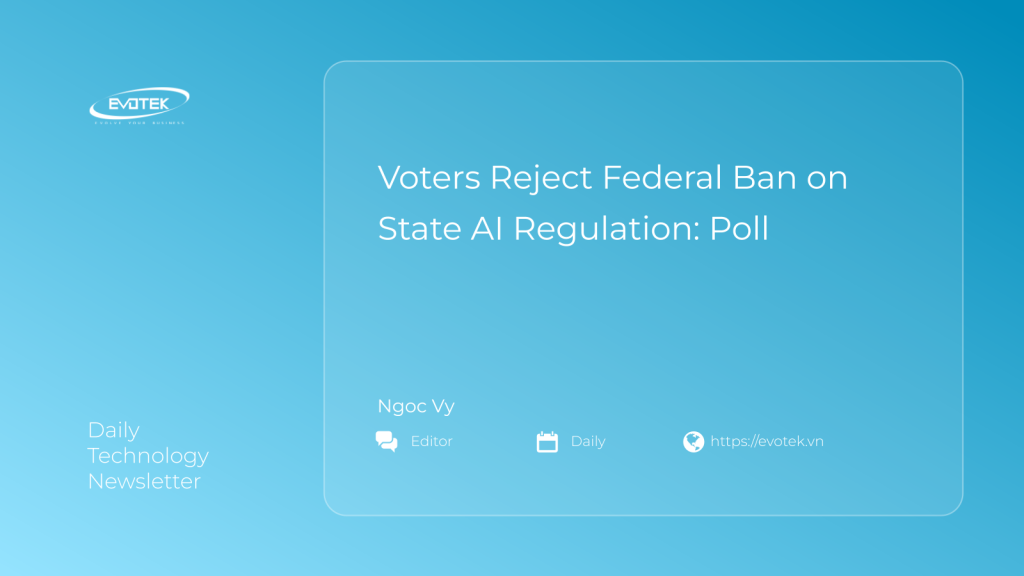A recent poll reveals strong public opposition to a key provision in the proposed One Big Beautiful Bill Act: a ban on state-level regulation of artificial intelligence.
The bill, currently under consideration in the Senate, aims to prevent individual states from creating their own AI regulations for a decade. Supporters argue a unified approach is crucial for U.S. tech companies to compete globally, free from the burden of varying state laws concerning issues like deepfakes and online safety.
However, critics warn that this moratorium would leave consumers vulnerable, especially without federal safeguards in place. Concerns center around the potential for unchecked AI development and deployment, posing risks to privacy, security, and well-being.
Key Findings: Voters Trust Local Leaders More
The Echelon Insights poll, commissioned by Common Sense Media, surveyed over 1,000 registered voters nationwide. The results show a clear preference for state control over AI regulation:
- Overall Opposition: 59% of voters oppose a federal ban on state AI regulation.
- Bipartisan Concerns: Even among Republicans, opposition (50%) significantly outweighs support (31%).
- Youth Safety a Priority: An overwhelming majority believes Congress should not prevent states from enacting youth online safety and privacy laws.
- Trust in Local Control: 53% of respondents trust state and local leaders more than federal politicians to regulate AI appropriately.
“Voters are concerned about the potential dangers AI-generated content can pose to kids and teens,” said Kristen Soltis Anderson of Echelon Insights. “They don’t want the federal government to dictate state policy on this issue.”
Advocacy Groups Urge Congress to Reconsider
Common Sense Media has joined a coalition of advocacy groups urging congressional leaders to remove the AI moratorium from the One Big Beautiful Bill Act. They argue that a ban would give AI companies unchecked power, with “no rules, no accountability, and total control.”
The organization also supports California bills designed to protect teens from the potential harms of AI companion platforms, including those that could lead to emotional attachment or manipulation.
Growing Concerns About AI and Youth Safety
The poll highlights widespread anxiety about the impact of AI on young people. Over 90% of respondents expressed concern about children being exposed to sexually explicit AI-generated content online.
This data suggests a strong public desire for safeguards that protect vulnerable populations as AI technology continues to evolve.

 日本語
日本語 한국어
한국어 Tiếng Việt
Tiếng Việt 简体中文
简体中文